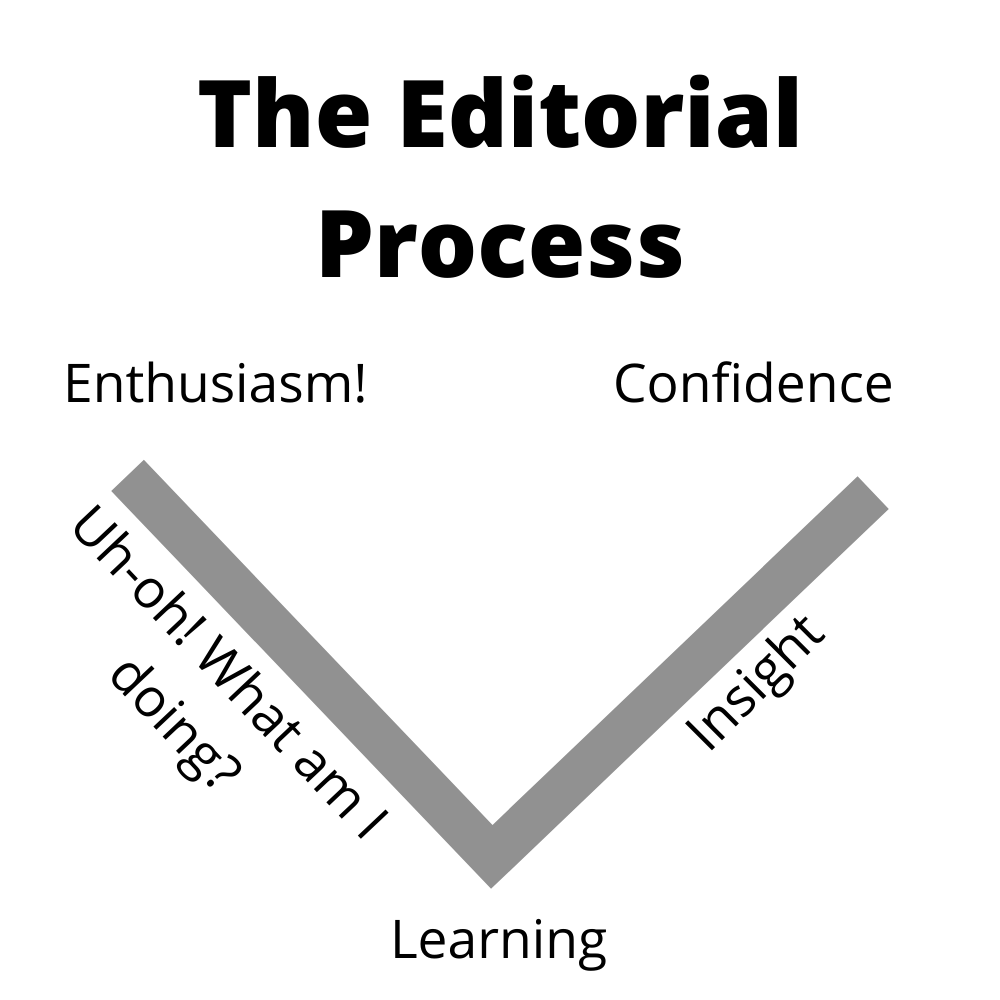The Editorial Process

Join the Club!
New to story editing? Begin at the beginning.

As a teacher of developmental editing, I want students to get comfortable with being able to advise big solutions to big problems. Often this is the best way to truly help an author produce superior work. It is also an invaluable method for stepping back to see the big picture (a poorly constructed conflict, for…
Developmental editors frequently talk about how authors can decide when a ms is ready for professional editing. They make good points about fixing obvious errors before paying for an editor’s attention. I mean, if you know your ending is weak, why are you sending your manuscript to me? Fix the ending, then send the manuscript…
When writing fiction, you’re likely to encounter problems with conflict—so the question is how to create conflict in a story. How to Create Conflict in a Story Conflict, as you probably know, drives the narrative. Consider this: Just now, I wanted a cup of tea, so I went and made one. So what, right? You…
Over the years, Club Ed students have asked for more nonfiction classes, and I’ve finally had a chance to create some. I’ve also organized them into a certificate program to make it easier to plan an effective course of study. More information about the certificate program can be found here. Classes include everything from how…
A questions I’m often asked is, “What are some of the biggest challenges people have in learning to become developmental editors?” This is usually from someone interested in developmental editing (particularly of fiction) as a career. The biggest challenge for people who are already working as copy editors or proofreaders is being able to let…
Editors sometimes focus on selling services (“I copyedit fiction, particularly genre fiction like romance and mystery”) and there’s nothing wrong with that if your clients know what you mean. For example, if you’re pitching book publishers or packagers, they don’t need to be told that copyediting includes making sure a manuscript adheres to house style….